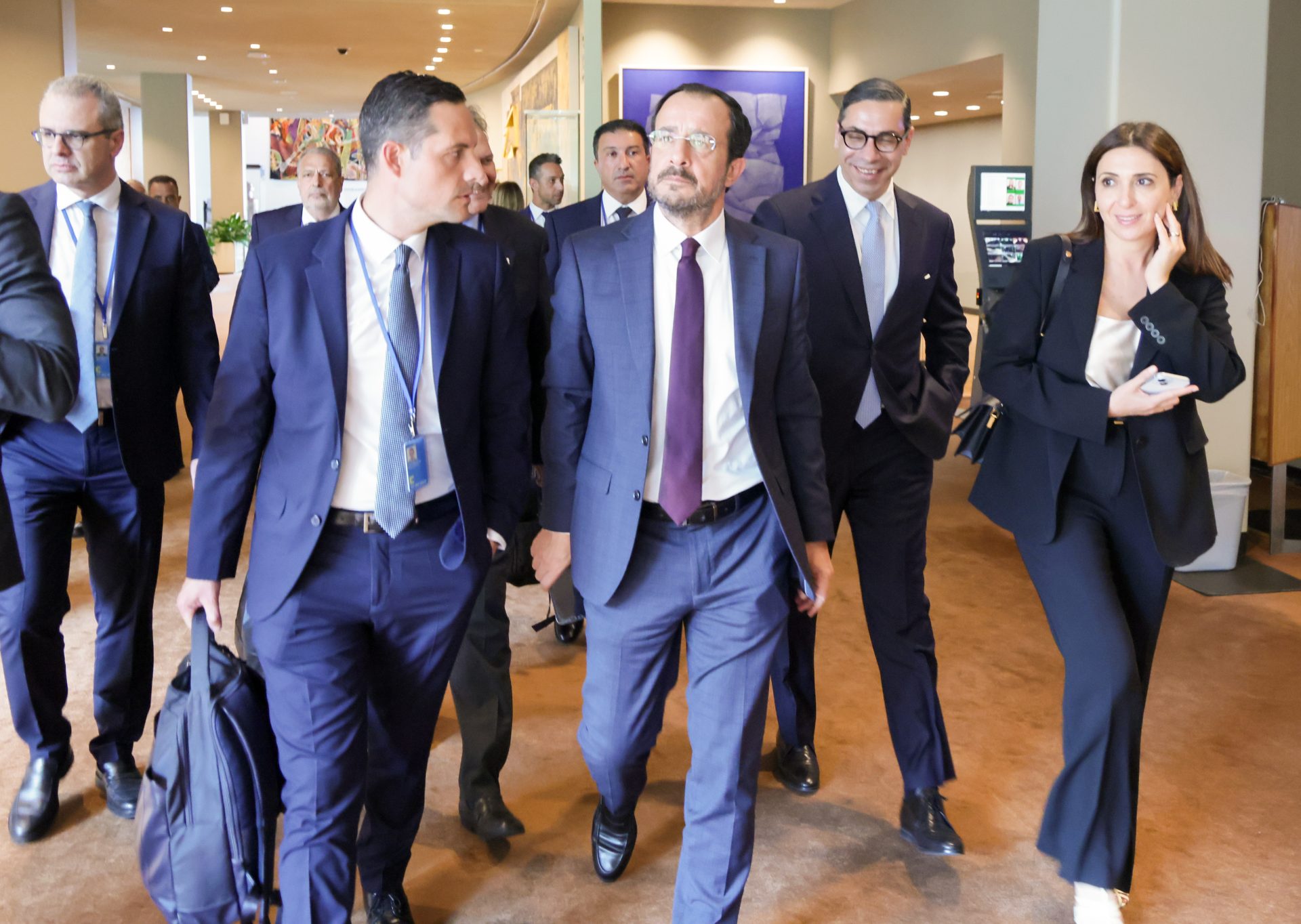Cyprus’ political parties on Friday were generally welcoming of the outcome of the enlarged meeting on the Cyprus problem, which was held in New York this week.
Akel said that while the meeting “did not lead to a breakthrough in the impasse”, it “kept the effort alive”.
“The meeting, as expected, did not lead to breakthrough in the prolonged impasse on the Cyprus issue, but it kept the effort alive with the involvement of the United Nations secretary-general [Antonio Guterres],” it said.
However, it did stress that “the fact that the discussion ended up revolving around confidence-building measures and crossing points is indicative of the distance which exists from the goal of resuming negotiations”.
“Akel appreciates the importance that confidence-building measures can have, but insists that the focus must be on continuing talks from the point at which they were interrupted in 2017 in Crans Montana, with all the convergences secured,” it said.
It added that “the unwavering insistence on this basis is also the response to the unacceptable demands made by Turkey and the Turkish Cypriot leadership regarding sovereign equality and a two-state solution”.
“At the same time, Akel underlines that the Greek Cypriot side and the Republic of Cyprus in general can and must take initiatives … which demonstrate that a solution to the Cyprus problem can be beneficial for all sides,” it said.
Diko, meanwhile, said that it “welcomes the assurance of the continuation of the process … and the reaffirmation of the agreed basis as defined by UN resolutions”.
“We asses the results of the enlarged meeting positively, taking into account the difficult political environment created by the lack of political will and the obstacles erected by Ankara and the occupation regime which undermine the prospects,” it added.
It also stressed that the Cyprus problem can only be solved through a bizonal, bicommunal federation with political equality, and added, “the Cyprus problem is a problem of invasion and occupation, and its solution cannot escape the agreed basis”.
On the matter of confidence-building measures, it said it supports their implementation “in a way which does not lead overtly or covertly to any type of upgrading of the occupation regime”.
It added that it “condemns the lack of political will and intransigent stance of the Turkish side, both on the issues of crossing points, and on the obstruction of projects of common benefit”.
Dipa leader Marios Garoyian had earlier told CyBC radio that the enlarged meeting produced “small but notable progress” which “keeps the process alive” and “leaves open the possibility of future developments which may lead to the resumption of talks from the point at which they were left off in Crans Montana”.
However, Edek was less than impressed, warning that “the Cyprus issue is being downgraded from a matter of invasion, occupation, and colonisation to a matter of bicommunal difference and so-called confidence-building”.
It criticised the fact that “no discussion took place on the substance”, and said that “another step was taking towards establishing internationally and domestically that the Cyprus problem is a problem of a lack of trust and cooperation, as the meaningless so-called confidence-building measures are now the only issue on the Cyprus problem agenda”.
With this in mind, it called on President Nikos Christodoulides to “avoid engaging in discussions which downgrade the Cyprus problem from its true essence as a matter of invasion, occupation, and colonisation to a matter of bicommunal difference and a matter of building trust”.
“We also call on [Christodoulides], where possible to prevent any upgrading of relations between Europe and Turkey until Turkey constructively engages in a substantive dialogue for the resolution of the Cyprus problem,” it said.







Click here to change your cookie preferences